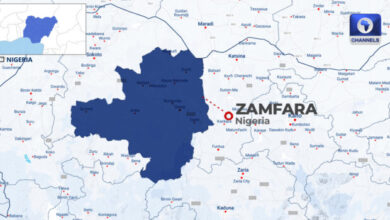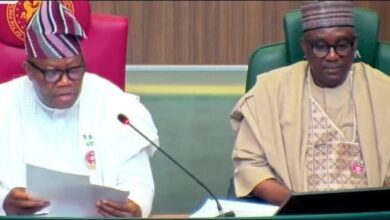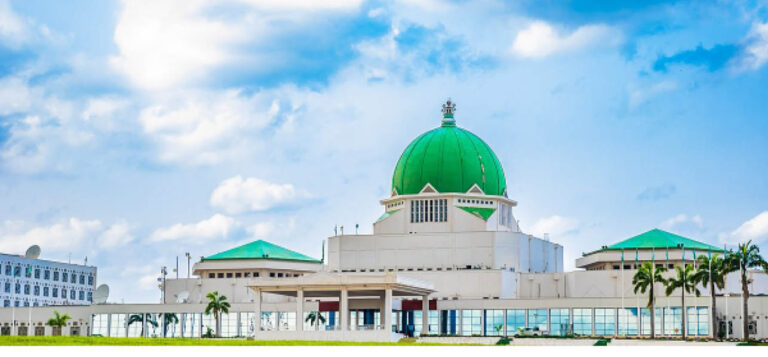Tinubu’s government borrows N57trn in 23 months, nears Buhari’s debt in 8 years – Report

Nigeria’s debt under President Bola Tinubu has soared to N56.6 trillion in just 23 months, which reflects that the nation’s helmsman has taken monumental loans to fix the economy and improve the country’s human development indices.
Mr Tinubu’s debt in 23 months is N18.7 trillion or 75.2 percent less than N75.26 trillion loans taken by former President Muhammadu Buhari in the whole of 8 years. Under President Tinubu, Nigeria’s public debt has jumped from N87.379 trillion as at June 2023 (one month after Mr Buhari’s exit from power) to N142.319 trillion as at September 2024. The debt reached N144.67 trillion ($94.23 billion) in December 2024.

With the World Bank’s approval of a fresh $1.08bn loan to Nigeria to support education, nutrition, and economic resilience in the country, the total public debt is now above N144.67 trillion, which is a worry to financial experts.
Naira devaluation impact
However, while Mr Tinubu’s debt has been monumental, the effect of naira devaluation cannot be ignored. President Tinubu has taken some external loans from the World Bank, the African Development Bank (AfDB) and other multilateral financial insitutions. But that is at a time the naira exchange rate has weakened against other major currencies.
As at the time President Buhari was leaving power by late May 2023, the exchange rate was less than N800/$. Data from FMDQ Securities Exchange showed that the naira exchanged at 775 to a dollar on May 26, 2023. Mr Tinubu came to power on May 29, 2023. Hence some of former President Buhari’s external loans were taken when a dollar exchanged at less than N800.
However, President Tinubu has taken some of his loans at a point when the naira exchange rate is at over 1,500 to a dollar. The naira was quoted at 1,552.53 to a dollar on Thursday at the Nigerian Foreign Exchange Market (NFEM), according to data from the Central Bank of Nigeria (CBN). In fact, the naira has weakened by over 70 percent since May 29, 2023, when Mr Tinubu came to power.
President Tinubu has removed petrol subsidies and subsequently floated the naira since 2023. Consequently, the price of petrol has skyrocketed from about N200 per litre to nearly N1000 per litre, with the exchange rate weakening from less than N800 per dollar to over N1,500 per dollar.
“So, naturally, President Tinubu’s debt should be high, given the disparities in the exchange rate over the period. If you use the parity rate for both debts, you will find that it won’t be as high as calculated,” explained a United Kingdom-based finance lecturer, Dr Matthew Onyemaechi.
“But what is certain is that President Tinubu is dangerously beginning to borrow because he does not believe he can raise sufficient revenue locally to finance projects.”
Tinubu’s loans
Mr Tinubu has taken a number of external loans since he assumed office in May 2023. Economy Post had reported in October 2024 that President Tinubu borrowed a total sum of $6.45 billion from the World Bank, according to a document seen on the global lender’s website.
The $6.45 billion captures loans borrowed by Mr Tinubu between May 29, 2023 and September 2024.
President Tinubu had borrowed $3.82 billion from the World Bank by October 2024, in addition to $500 million borrowed from the Africa Development Bank (AfDB).
So far, President Tinubu has borrowed over N13.21 trillion ($8billion) from the World Bank for different developmental projects in the last 20 months, according to Daily Trust.
In July 2024, the Board of Directors of the African Development Bank Group approved a loan of $500 million to Nigeria to finance the first phase of the “Economic Governance and Energy Transition Support Program (EGET-SP),” which is a new programme aimed at accelerating transformation of the country’s electricity infrastructure and improving access to cleaner sources of energy.
Nigeria’s total debt
Nigeria’s total public debt increased to N142.3 trillion as of September 30, 2024, representing an increase of 5.97 percent (N8.02tn) from N134.3 trillion seen in June 2024.
Data from the Debt Management Office (DMO) showed that external debt in dollar terms increased from $42.90 billion in June to $43.03 billion in September 2024.
However, the total sum has not factored in Mr Tinibu’s recent loans, especially from the global lender, the World Bank.
“The International Monetary Fund and the World Bank, frequently, and often repeatedly, extend loans to developing nations. These loans have been blamed for generating adverse economic outcomes,” said scholars, James Butkiewicz and Halit Yanikkaya in an article.
“…A unique feature of this study is the use of the value of loans rather than the number of programs. The estimates indicate that Bank lending stimulates growth in some cases, primarily by increasing public investment. Fund lending is either neutral or detrimental to growth. The channel for this effect is a negative impact of Fund lending on public as well as private investment.”









